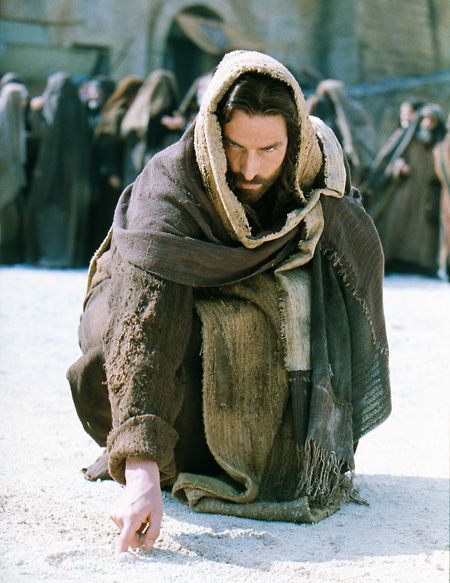
Saul Chosen, Anointed and Proclaimed to Be King
As many who have followed me for a bit, I have fallen into the Psalms, and I can’t get up! (As if I would want to.) The Psalms are a majestic collection of poetry, of heart felt human experiences that constantly challenge me in my own frail attempt to follow the true King. As many of the Psalms are written by David, my study on the Psalms has spurred me on to looking at the life of David, is the main contributor to this book, and to follow the victories and tragedies of the shepherd King of Israel.
Many times in the narrative, we will see the Lord Jesus, imperfectly, yet a reflection of His spirit in a man with weaknesses. Let’s continue with our look into the man who would become Israel’s first king, if only to consider the historical condition David enters into as he soon appears in our study.
1 Samuel 10:1
1 Then Samuel took a flask of oil and poured it on his head and kissed him and said, “Has not the LORD anointed you to be prince over his people Israel? And you shall reign over the people of the LORD and you will save them from the hand of their surrounding enemies. And this shall be the sign to you that the LORD has anointed you to be prince over his heritage.
In this passage we find Saul receiving his office as king and two mandates for the remainder of his life.
Saul was to be Prince over God’s people Israel
Saul went from being a donkey hunter to replacing God as the king of Israel. Heady stuff! To be a prince over God’s people.
Not only is Saul to be king over a nation, but it is a nation that has been miraculously created and rescued from dangers and threats since it was established, without the need of a king. Talk about filling a position that is not required, other than to satisfy the whim of a population that seeks to walk away from God. I don’t know about you, but I do not envy Saul being given this honor!
Three times Samuel refers to the LORD in this passage, using the tetragrammaton, the four letters that represent God’s self existent revelation of His person. Is Samuel possibly reminding Saul that God, who placed him on the throne, is not some territorial god that is “one among many”, but that He is the eternal self existent God that depends on no one and provides for all?
No matter what, Saul has his work cut out for him and Samuel provides two mandates from the Lord as to his mission in life as king of Israel.
Saul is to reign over the people of the LORD
As I said, Saul has his work cut out for him, replacing the Lord in reigning over the LORD’s people. Yes, it is true that theoretically he was not to be independent of God, but to find direction, strength, wisdom, understanding, patience, and all the other components required to reign over God’s people per God’s direction, from God and God only.
But what is it to “reign”?
Some of my brothers in the faith would say that to reign is to control, to influence each citizen of the kingdom in all their decisions and actions, requiring all to be compliant to the whims and wishes of the monarch. I suppose this may be the intent of leader who is insecure, or that is power hungry. Would you agree that both of these types of leaders do not represent God’s wishes in a leader?
Consider that if God chooses a man for a position, the security comes from God, and if for some reason God decides to move the man onto some other responsibility, that is simply a matter of obedience to the will of God.
If the leader is power hungry, and has exorbitant demands, continually increasing in his authority over the people he reigns, he becomes a dictator. Under a dictator, the people always suffer, for he is not there to serve the people, but to abuse his position and take what is not rightly his.
As King, Saul was to reign over the LORD’s people. Although not comparable in every way, there are some similarities to the leaders in the New Testament church. All of God’s leaders have some commonalities in their work for God. For those who may be interested, I considered what it meant for a New Testament leader to rule in the church in a blog years back. (Christian Accountability – Rule).
Let me know if a king over Israel could rule his people using the same method as described in Hebrews 13. I would suggest that the king of Israel was to primarily be a servant of the people, to direct the people into a society that honors God and promotes both internal and external peace for it’s citizens.
Saul is to save the people of the LORD from their enemies
As mentioned above, the second mandate given to Saul from the LORD was to save them from their enemies. This has been the LORD’s desire throughout Israel’s history and should not surprise us as a specific task. He is not tasked with developing a new social order, creating a different type of economy or producing a new style of worship to their God.
He is to protect them, save them from threats. Given the history of God’s method of protection prior to Saul’s arrival on the scene, we should not understand that this requires a multiplicity of horses and chariots, of increasing the size of the army, or of building defensive battlements, unless directed by God of course. But this hasn’t been the typical direction God has taken this nation!
Consider the unorthodox methods God has used to deliver the nation prior to Saul being installed as king.
- Use a famine to direct a small family into a strange nation (Egypt).
- Allowance of the people to become slaves for a great delivery to be performed.
- Use a stutterer to confront the most powerful man on earth, demanding the slave be let go.
- Ten plagues, with protection for the people of God for each plague.
- Split the Red Sea to save the people and defeat the Egyptians.
- Rain manna down from heaven to supply for the nation.
- Parade around a town for a week until the walls fall down.
- Send out a coward out to fight and defeat the Midianites, with only 300 farmers.
Need I go on?
To be the king of Israel, from a historic perspective, meant that conventional methods of protecting the nation were not typical. The nation of Israel was to be completely different, not only in their worship, but also in who they looked to for their safety. Saul is now under the microscope of every citizen of Israel, and he has only One hope.
That hope turns out to be the One he is replacing as the leader of the nation.
Yes I surely do not envy Saul’s position. It is a good thing that the LORD is not a power hungry dictator or an insecure monarch, but is the perfect and rightful King. He was ever ready to provide guidance to Saul for his success. God is also ever ready to provide for us as we seek His guidance and do as He directs. He has never stepped down from His throne, and we can be thankful it is a throne of grace, ever ready to provide help in time of need.
Hebrews 4:16
Let us then with confidence draw near to the throne of grace, that we may receive mercy and find grace to help in time of need.
Thanks again for coming to visit. I hope you found something of interest in this post and would appreciate a comment, to begin a discussion. If you know someone this blog may bless (or challenge), send them a link, so they may join us in our discussion.
Come join us at Considering the Bible


2 responses to “Life of David – 1.06”
[…] Life of David – 1.06 […]
LikeLike
Happy is that people, that is in such a case: yea, happy is that people, whose God is the LORD.
Psalms 144:15
LikeLiked by 3 people